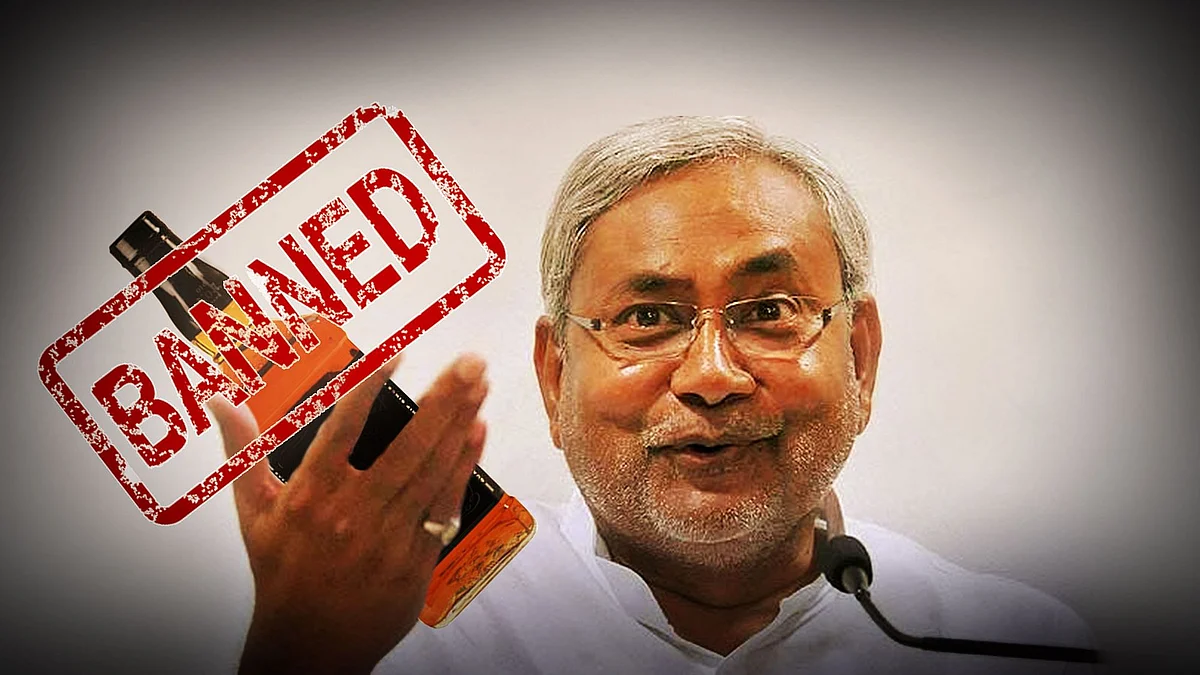
'Bihar Only a Dry State on Paper': How Women in the State Are Losing to Hooch
Bihar is a dry state on paper, but have the lives of women, in whose name the prohibition was implemented, changed?

advertisement
(This article was originally published on 17 November 2021. It has been reposted in light of the fresh hooch tragedy in Bihar, which has claimed the lives of at least 50 people in Saran district.)
Last month, Swati Kumari, who lives in Bihar’s Gopalganj district, rushed her husband to the nearest hospital after he collapsed within minutes of reaching home, reeking of alcohol. His friend later confessed that they had consumed country-made illicit liquor, just hours earlier.
Kumari’s husband survived the ramifications of hooch. But many others have not been as fortunate.
In the last 10 days since Diwali, at least 40 men have lost their lives after consuming illicit liquor in the state – now being dubbed as Bihar’s biggest hooch tragedy yet. Since January this year, at least 90 people have lost their lives to it, as per official data released by the state.
Domestic Violence and Liquor Ban
In the run-up to the 2015 Assembly elections in Bihar, incumbent Chief Minister Nitish Kumar sought to return to power by promising prohibition. In every rally, he addressed women and told them that if he returns to power, there will be no more alcohol in the state. One of the primary reasons, he said, was to curb domestic violence, which has often been linked to excessive drinking.
On 1 April 2016, Kumar declared Bihar as a dry state, following the likes of Gujarat, Lakshadweep, and Mizoram. With the ban, and no rehabilitation offered, those who wanted to consume alcohol found more dangerous alternatives to consume it.
The crime rate – which is cases per 1,00,000 women – fell by 45 percent. In this period, the nationwide cases filed under 498A rose 12 percent and the crime rate rose 3 percent.
Speaking to IndiaSpend, 21-year-old Sandhya said that the situation has become better in her home – with her father drinking less.
Proliferation Of Illicit Liquor
However, experts say that these anecdotes should be taken with a pinch of salt as an alternate economy for liquor is thriving – with women not just fighting alcoholism but extending it to fighting poisonous alcohol.
Prior to 2016, Bihar consumed close to 25 million litres of alcohol each month, as per state excise department figures, reported IndiaSpend. The same year, all-India figures for alcohol consumption stood at about 5.4 billion litres, the news report added.
A 27-year-old grass-root level NGO worker Minal (name changed) in Patna told The Quint that she left her home and husband in Samastipur district in 2020, after her husband refused to give up on illicit liquor.
“People who come from lesser financially privileged background started replacing alcohol with spurious alcohol. Once you are addicted, you cannot stop drinking alcohol without proper redressal measures like counselling. What is happening is dangerous and hooch is available in every village in every district. One must also understand that people who make this illicit liquor also do it because they have no other option and not with a conspiracy to kill,” Pushpendra Kumar, Professor, Tata Institute of Social Sciences, Patna, told The Quint.
Rethink Liquor Ban, More Violence When Families Have Less: Experts Sound Warning
Experts warn that the recent tragedy is a wake-up call for the Bihar government to rethink alcohol ban.
According to Dr Ranjana Kumari, Director, Centre for Social Research, one can treat people for alcoholism, but not ‘force it’ upon them.
“In my opinion, an alcohol ban is unlikely to be effective. Just the idea of ban will make people want to breach it. That should be removed. You can treat people for alcoholism, but you cannot force them to stop – those who drink will drink,” she said.
So, what should ideally be done by government?
The problem with prohibition, Kumar adds, is because of the way it is implemented as well. Alcoholism is seen as a law and order issue but not a socio-economic one.
But are these too western a concept to be implemented in India?
“Even if the issue seems utopian now, you have to make it a reality. That is the government's responsibility. You cannot sit simply because they can do only certain things. With that approach, such tragedies will continue.”
(With inputs from IndiaSpend)
(At The Quint, we question everything. Play an active role in shaping our journalism by becoming a member today.)
- Access to all paywalled content on site
- Ad-free experience across The Quint
- Early previews of our Special Projects
Published: 17 Nov 2021,09:39 AM IST